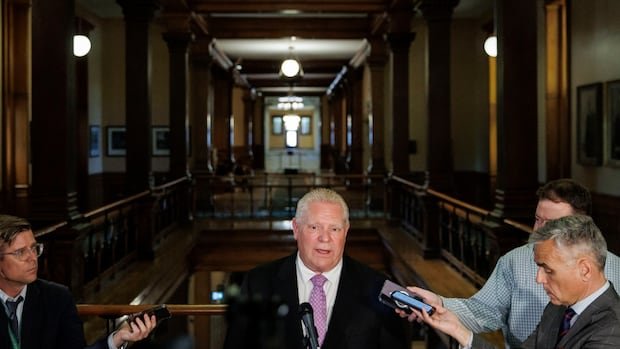Ontario Premier Doug Ford, alongside relatives of Andrew Cristillo, a father who tragically lost his life in a head-on collision in August, unequivocally stated that the incident was not an accident but a deliberate act during a press briefing on September 5. The accused, Jaiwin Victor Kirubananthan, faces charges of dangerous driving causing death, not murder charges, as they have yet to be tried in court. This case hits close to home for Ford, as Kirubananthan was previously involved in a collision with an OPP vehicle carrying the premier.
While Ford usually refrains from commenting on ongoing legal matters, he has made exceptions, prompting concerns from legal experts about the potential impact on court proceedings. Ford’s recent remarks on the Kirubananthan case are one example that has raised eyebrows, with critics citing risks of biasing jury opinions and spreading misinformation.
In another incident in Lindsay, Ontario, where a resident faced assault charges for defending against a home invasion, Ford publicly shared his views without having all the details at his disposal. This pattern of involvement in criminal cases without comprehensive information has previously drawn scrutiny, such as in the case of Umar Zameer, where Ford criticized bail decisions before the full facts were known.
Legal professionals emphasize the importance of upholding the presumption of innocence and caution against public figures like Ford potentially influencing legal processes. While freedom of expression allows for opinions, experts warn that unwarranted comments from high-profile individuals can complicate trials, as seen in past instances where remarks from prominent figures interfered with fair judicial proceedings. Weisberg, a criminal lawyer, voices concerns that such interventions may erode public trust in the justice system.
Reflecting on the potential consequences of intervening in legal matters, experts stress the need for caution and a focus on broader policy considerations rather than isolated incidents when shaping public discourse.

